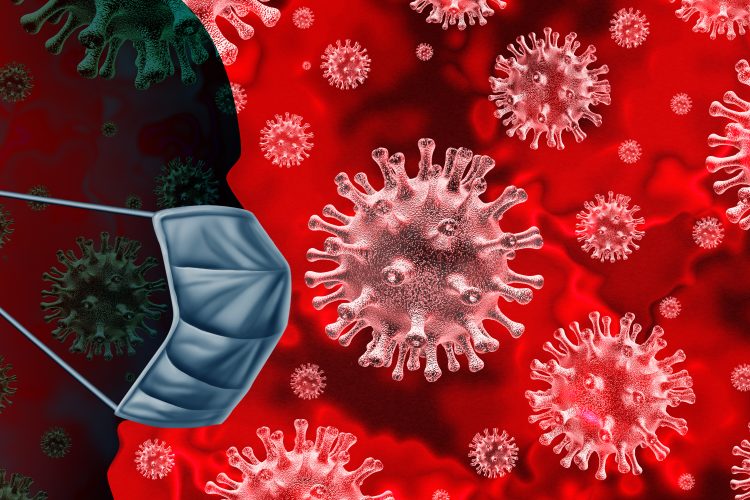Some people become infected but don’t develop any symptoms and don’t feel unwell. Most people (about 80%) recover from the disease without needing special treatment. Around 1 out of every 6 people who gets COVID-19 becomes seriously ill and develops difficulty breathing.
The most common symptoms of COVID-19 are fever, tiredness, and dry cough. Some patients may have aches and pains, nasal congestion, runny nose, sore throat or diarrhea. These symptoms are usually mild and begin gradually. Older people, and those with underlying medical problems like high blood pressure, heart problems, diabetes, chronic lung disease, cancer or diabetes, are more likely to develop serious illness. People with fever, cough and difficulty breathing should seek medical attention.
HOW DOES COVID-19 SPREAD?
People can catch COVID-19 from others who have the virus. The disease can spread from person to person through small droplets from the nose or mouth which are spread when a person with COVID-19 coughs, sneezes, talks or exhales. These droplets land on objects and surfaces around the person. Other people then catch COVID-19 by touching these objects or surfaces, then touching their eyes, nose or mouth. People can also catch COVID-19 if they breathe in droplets from a person with COVID-19 who coughs out or exhales droplets. This is why it is important to stay more than 1 meter (3 feet) away from a person who is sick.
CAN COVID-19 BE CAUGHT FROM SOMEONE WHO HAS NO SYMPTOMS?
The main way the disease spreads is through respiratory droplets expelled by someone who is coughing. The risk of catching COVID-19 from someone with no symptoms at all is very low. However, many people with COVID-19 experience only mild symptoms. This is particularly true at the early stages of the disease. It is therefore possible to catch COVID-19 from someone who has, for example, just a mild cough and does not feel ill.
SHOULD I WORRY ABOUT COVID-19?
Illness due to COVID-19 infection is generally mild, especially for children and young adults. However, it can cause serious illness: about 1 in every 5 people who catch it need hospital care. It is therefore quite normal for people to worry about how the COVID-19 outbreak will affect them and their loved ones.
We can channel our concerns into actions to protect ourselves, our loved ones and our communities. First and foremost among these actions is regular and thorough hand-washing and good respiratory hygiene. Secondly, keep informed and follow the advice of the local health authorities including any restrictions put in place on travel, movement and gatherings.
IF MORE THAN 80% OF THOSE INFECTED RECOVER WITHOUT SHOWING SERIOUS SYMPTOMS, WHY SHOULD I STAY AT HOME?
Having 80% of those infected recover without showing serious symptoms means 20 out of 100 people would show serious symptoms which can as well lead to death. Is this not a significant statistics?
COVID-19 infection spreads faster than it kills. This is a game we are yet to beat. Prevention is better than CURE because you do not know your chance of survival if you contact it. For now, stay home! Stay positive! Practise hand hygiene!
Above all, be optimistic and let your spirit be high.
CULLED FROM W.H.O.

